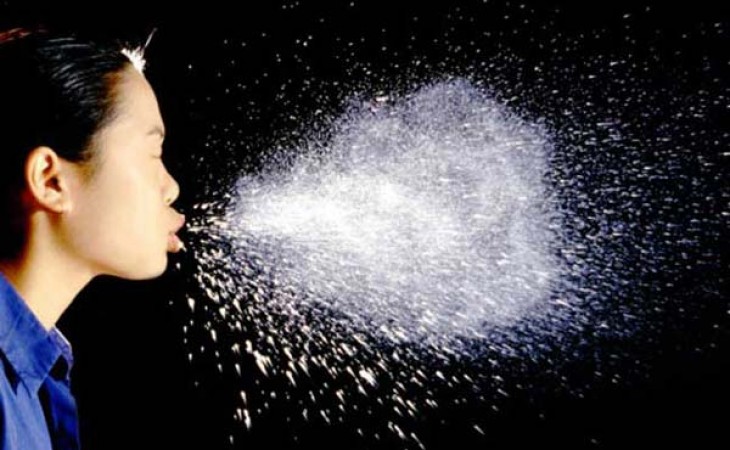
The idea that the heart stops when you sneeze is a long-standing myth. This belief has been passed down through generations, often without much scrutiny. But where did it come from? This misconception likely originated from the noticeable effects sneezing has on the body, such as the temporary cessation of breath, leading people to speculate that more drastic physiological events, like the heart stopping, might occur as well.
Many people think that the intensity of a sneeze is powerful enough to stop the heart. The sudden, forceful nature of sneezing, along with the momentary interruption of breathing, contributes to this misunderstanding. But is there any truth to this belief? To answer that, we need to delve into the mechanics of sneezing and how the heart functions during this reflex.
Sneezing, or sternutation, is a reflex action that clears the nasal passages of irritants. It involves a coordinated effort of various muscles and parts of the respiratory system. Here’s what happens step-by-step:
The vagus nerve plays a crucial role in the sneezing process. It’s part of the parasympathetic nervous system and helps regulate heart rate, among other functions. When you sneeze, the vagus nerve sends signals that temporarily affect your heart rate, but this doesn’t mean your heart stops.
During a sneeze, your heart rate may slow down slightly due to the vagus nerve’s influence. This phenomenon is known as vagal tone. However, this is a far cry from the heart stopping. The heart’s rhythm is incredibly resilient and can handle the brief vagal stimulation without skipping a beat.
The sensation that your heart stops may stem from the abruptness of the sneeze and the momentary pause in your breathing. Your heart might seem to skip a beat, but in reality, it’s just a minor, normal fluctuation in rhythm.
Cardiologists and medical professionals affirm that the heart does not stop during a sneeze. Dr. Richard Conti, a past president of the American College of Cardiology, has stated that while there is a momentary change in heart rate, it’s not significant enough to cause concern or indicate that the heart stops.
Studies on heart activity during sneezing show minor changes in rhythm but no cessation of heartbeat. The heart is incredibly robust and designed to handle various stimuli and reflexes without stopping.
Reflex actions like sneezing are the body’s way of protecting itself. The suddenness of these actions can cause noticeable but harmless effects on heart rate and breathing. Understanding this helps debunk the myth that sneezing can stop the heart.
Human perception can be deceptive. The physical sensations associated with sneezing—like the pressure build-up and rapid expulsion—can create the illusion of the heart pausing. In reality, these sensations are just normal bodily responses.
Public education is crucial in dispelling myths like this one. By providing clear, science-based explanations, we can help people understand what really happens during a sneeze and why their heart remains unaffected.
For those who are concerned about the effects of sneezing on their heart, it’s important to reassure them with facts. The heart is a resilient organ that is built to withstand minor disruptions without stopping.
Did you know that sneezing etiquette varies around the world? In some cultures, it’s considered polite to excuse yourself after a sneeze, while in others, different customs apply. Regardless of where you are, covering your mouth and nose is universally encouraged to prevent the spread of germs.
A sneeze can propel droplets at speeds up to 100 miles per hour! This incredible speed is why sneezing is so effective at clearing irritants from the nasal passages.
Humans aren’t the only ones who sneeze. Many animals, including cats and dogs, sneeze as a way to clear their nasal passages. This reflex is crucial for their respiratory health as well.
For most people, sneezing is a harmless reflex. However, for individuals with certain medical conditions, such as heart disease, frequent sneezing might cause minor concerns due to the temporary change in heart rhythm. Consulting a healthcare provider can provide reassurance and advice tailored to individual health needs.
It’s a common belief that you can’t sneeze with your eyes open. While most people instinctively close their eyes when they sneeze, it’s not impossible to keep them open. However, it’s not recommended as it could cause discomfort.
Some people sneeze multiple times in a row due to heightened sensitivity in their nasal passages or stronger reflexes. This is generally harmless and varies from person to person.
The belief that your heart stops when you sneeze is just that—a belief, not a fact. Your heart may experience a slight change in rhythm, but it does not stop. The human body is designed to handle reflex actions like sneezing without causing harm to vital organs.
Your body is a well-oiled machine capable of handling sneezes and other reflexes without significant disruptions. Trust in its resilience and the remarkable design of your cardiovascular system.
Now that you know the truth, you can sneeze without fear. The next time someone tells you your heart stops when you sneeze, you can confidently bust the myth with science-backed facts.
What kind of diet should a cancer patient follow after chemotherapy, know what the experts say
How Much Milk Should Women Drink During Pregnancy?
Parenting Tips: How should a mother-daughter relationship be?